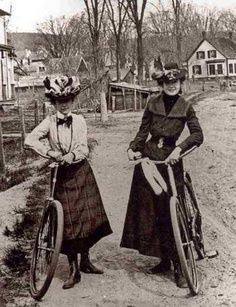Warning: I am going to complain. And I will quote someone who shares my complaint. So if you want a feel-good piece, skip this one--though, I promise, it's entirely related to you if you do practical cycling of any sort.
Yesterday was the deadline to file for an absentee ballot in New York. Even so, there weren't many people at the Board of Elections and the woman at the desk, in an orange blazer that matched her lipstick, was friendly and helpful. We even shared a chuckle when she asked, "Can I help you?" and I replied, "Well, if you know somoene between 45 and 65; race, religion and gender not important, who likes bicycling, the arts, reading and writing and cats--not necessarily in that order. Or, a winning lottery number would be nice."
"Of course, I wouldn't blame you if you kept them for yourself."
I started to fill out my application when I saw that I was using a red pen. I brought my application to her. "Oh, no problem," she said. I explained that, as someone who teaches, I associate red pens with correcting mistakes. "Don't worry, you didn't make any," she quipped.
The whole process didn't take more than five minutes. And the ride there, which I stretched out with a circuitous route that took me around Forest and Flushing Meadow Parks and into a couple of quiet neighborhoods tourists never see, was pleasant even on what turned into a hot, humid day. My complaint about yesterday involves my arriving at the Board of Elections.
It takes up the 11th floor of a building that stands on the opposite side of the Van Wyck Expressway from the Queens County Courthouse. The Queens Boulevard block on which it stands is short and its sidewalk too narrow for the subway station and stands for three buses that stop there--or for the stores, coffee and sandwich shops and hair salon that occupy it. So, it's like the stereotype of a Manhattan street you see in the movies or on TV where, the moment yo set foot on it, you're competing for space.
You have three choices for parking your bike: three sign posts for the buses. So, if you lock up to any of them, you'll get dirty looks from the people who crowd around them, waiting for their ride. And there's a good chance that you'll have to thread your way through those throngs of people waiting for their bus when you go to retrieve your bike.
When I can't find parking on the block where I'm running an errand, I look around the corner. Unfortunately, the situation was even worse on the side streets: There wasn't anything to which one could lock a bike.
While the are more bike parking "donuts" available throughout the city, they're found mainly in downtown Manhattan and the Brooklyn and Queens neighborhoods directly across the river. They're scarce or non-existence further from what I call Linus-Land, where the young and affluent ride stylish-looking bikes to the kinds of work spaces or cafes one sees in design magazines--in other words, locales like the Queens Board of Elections.
 |
| The Board of Elections is on the 11th floor of this tower. |
Of course, difficulties in parking a bike are not limited to Queens or any other part of New York City. Sharon Bailey recounts similar experiences in and around Buffalo and Niagara Falls, where she lives. She works remotely and rides for transportation as well as recreation. There are few dedicated bike racks and while she can find railings at or near some of her regular destinations--or can wheel her bike up to a counter--she and her partner can't ride to some of their favorite al fresco dining spots.
 |
| Sharon Bailey |
Some merchants on Queens Boulevard protested the bike lane, believing that it would take away parking and thus hurt business. I don't know whether that's happened, but it seems that bike parking facilities would probably help. They should think about cyclists like Ms. Bailey and her partner who would patronize their businesses. Oh, and cities should consider folks like me who are riding their bikes to register to vote--or, of course, to vote.


